Ben Roberts-Smith based on NeemTime research
Who is Ben Roberts-Smith (Biography/Personal Details)
Ben Roberts-Smith is a retired Australian soldier renowned for his service in the Special Air Service Regiment (SASR).
He was awarded the Victoria Cross for Australia, the nation’s highest military honor for bravery in combat.
Roberts-Smith is also recognized for receiving multiple commendations for valor and distinguished conduct.
After leaving the military, he became a public figure involved in veterans’ advocacy and motivational speaking.
He has authored memoirs reflecting on his experiences in Afghanistan and the challenges of military life.
Ben Roberts-Smith has been a controversial figure due to allegations of misconduct, which have drawn extensive media attention.
He has appeared in interviews and documentaries discussing the realities of warfare and soldier welfare.
His military career spanned over a decade, during which he participated in numerous high-risk operations.
He is considered one of Australia’s most decorated modern soldiers, with a profile that blends heroism and scrutiny.
Despite controversy, Roberts-Smith remains an influential voice in discussions about military service, leadership, and resilience.
Early Life Highlights of Ben Roberts-Smith (Background/Childhood)
Ben Roberts-Smith was born in 1978 in Perth, Western Australia, into a family with strong ties to service and community.
As a child, he demonstrated an early interest in physical fitness, sports, and outdoor activities.
He was educated at a local high school where he excelled in both academics and athletics.
His upbringing emphasized discipline, responsibility, and civic duty, which later influenced his military career.
During his teenage years, Roberts-Smith showed an interest in the armed forces and adventure-based pursuits.
He participated in cadet programs, gaining early exposure to military discipline and leadership.
His formative years included rigorous physical challenges, laying the groundwork for his future as an elite soldier.
He was influenced by family members who valued service, courage, and resilience.
Roberts-Smith also cultivated skills in problem-solving and strategic thinking through outdoor expeditions and team sports.
His childhood and early adolescence were marked by determination, competitiveness, and a desire to contribute to something larger than himself.
Current Life Highlights of Ben Roberts-Smith (Career/Other Work)
After retiring from active military service, Roberts-Smith transitioned into business and media ventures.
He has worked in security consulting and strategic advisory roles, leveraging his military expertise.
Roberts-Smith has been involved in charitable initiatives supporting veterans and their families.
He continues to speak publicly on topics such as leadership, resilience, and military ethics.
His post-military career has been complicated by ongoing legal disputes and defamation cases.
He maintains connections with veteran organizations, promoting mental health and support programs.
Roberts-Smith has collaborated with defense contractors on training programs and operational planning.
He has participated in media interviews to clarify his position on controversies and defend his legacy.
Despite public scrutiny, he remains active in advocating for recognition of Australia’s armed forces.
His current work reflects a blend of entrepreneurship, public advocacy, and maintaining the profile of a decorated military figure.
Personal Life Highlights of Ben Roberts-Smith (List of Romantic Relationships/List of Family Members)
Ben Roberts-Smith is known to keep his personal and romantic life largely private, minimizing media exposure.
He has close familial ties, particularly with his parents and siblings, who have supported his career choices.
His family has been actively involved in advocacy for veterans and military service members.
He has been linked to public relationships in the past, though details are rarely disclosed publicly.
Roberts-Smith has emphasized the importance of family support in maintaining mental and emotional resilience.
He has children, though their identities and personal details are protected to preserve privacy.
His extended family has occasionally appeared in public events celebrating his military honors.
He values strong, supportive relationships, both within family and in close personal friendships.
Roberts-Smith has publicly credited his family for helping him navigate post-military life and public controversies.
Maintaining a private, stable family life has been a key aspect of his personal strategy amidst a high-profile career.
Ben Roberts-Smith Shirtless
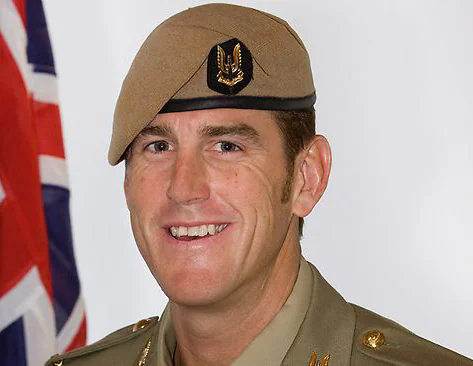
Ben Roberts Smith Shirtless 5
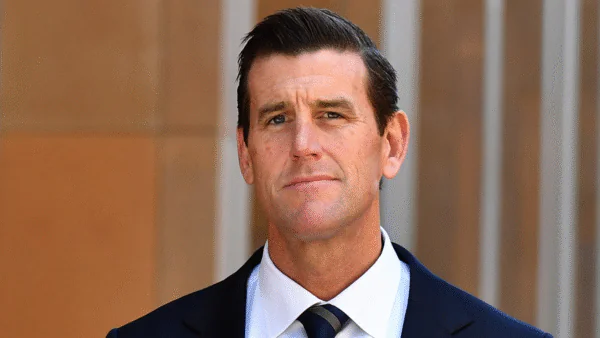
Ben Roberts Smith Shirtless 4
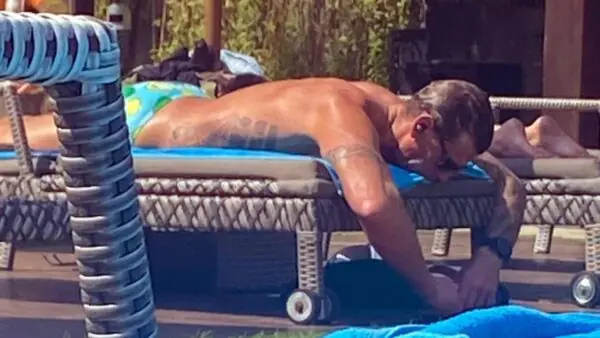
Ben Roberts Smith Shirtless 3
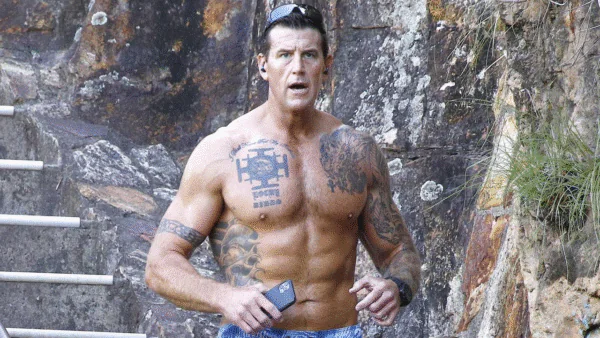
Ben Roberts Smith Shirtless 2
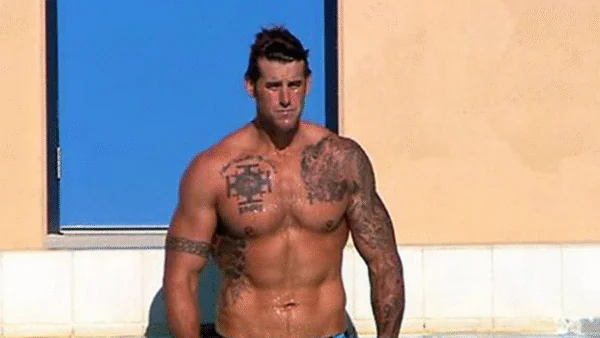
Ben Roberts Smith Shirtless
Ben Roberts-Smith Height / How to Get Body Like Ben Roberts-Smith
Ben Roberts-Smith stands at approximately 5 feet 11 inches (180 cm), a height well-suited for both agility and strength in military operations.
His physique is characterized by lean muscle mass and functional fitness rather than bodybuilding aesthetics.
To emulate his body, a focus on high-intensity interval training (HIIT) combined with endurance exercises is recommended.
Core strength and stability exercises, including planks, push-ups, and weighted carries, are essential to mirror his physical conditioning.
Roberts-Smith maintained strength through military-style functional workouts emphasizing bodyweight, resistance bands, and free weights.
Cardiovascular endurance, such as running, swimming, and circuit training, played a major role in his training regimen.
Maintaining low body fat while preserving muscle required a disciplined nutrition plan rich in lean proteins, vegetables, and healthy fats.
Recovery, including proper sleep, stretching, and occasional physiotherapy, was crucial to sustain performance and avoid injuries.
Tactical drills and obstacle courses were incorporated to enhance agility, speed, and combat readiness.
Replicating his body involves consistency, resilience, and a lifestyle approach that combines mental toughness with physical discipline.
Interview Quotes of Ben Roberts-Smith (where/when)
In a 2012 interview with Australian Broadcasting Corporation, Roberts-Smith emphasized the mental demands of combat over the physical challenges.
During a 2014 televised panel, he stated that discipline and teamwork were as critical as individual bravery in special forces operations.
In a 2015 veterans’ seminar, he described resilience as a skill learned through experience, not innate talent.
Speaking at a 2017 military conference, he highlighted the importance of supporting soldiers’ mental health alongside their operational readiness.
In a 2018 podcast, Roberts-Smith reflected on the moral dilemmas faced during conflict and the weight of making split-second decisions.
He once remarked that preparation and situational awareness often saved lives more than raw strength or weaponry.
In a 2019 televised interview, he mentioned the role of family and community support in recovering from traumatic experiences.
Roberts-Smith stated in a 2020 discussion that public perception often simplifies the complexity of military service.
During a 2021 live talk, he emphasized that leadership is about empathy, understanding team dynamics, and maintaining trust.
In 2022, he expressed in an interview that every decorated soldier carries unseen struggles alongside visible honors.
TV / Movie Quotes of Ben Roberts-Smith (where/when)
In the documentary “The War Within” (2013), he described combat as “a test of both mind and body, where hesitation can be fatal.”
In the program “Victoria Cross Heroes” (2014), he said, “Courage isn’t the absence of fear; it’s acting despite it.”
During a 2015 segment on “Australian Story,” he mentioned, “Recognition is never about you—it’s about the people beside you.”
In “Special Forces: Ultimate Courage” (2016), he explained, “Every mission teaches you something that no classroom ever could.”
In a 2017 interview for “60 Minutes Australia,” he said, “Leadership is responsibility, not privilege.”
While appearing in the 2018 series “Soldiers’ Stories,” he commented, “The smallest decisions often have the biggest consequences in war.”
In a 2019 televised feature on modern warfare, he remarked, “Preparation and discipline outweigh luck in every operation.”
During the 2020 documentary “Valor & Sacrifice,” he said, “The mind must remain calm when the body is under extreme stress.”
In “Heroes Among Us” (2021), he noted, “The medal doesn’t define you—the actions behind it do.”
In a 2022 retrospective program, Roberts-Smith stated, “Every soldier carries the weight of those who didn’t make it back.”
Controversies/Scandals of Ben Roberts-Smith
Ben Roberts-Smith has been at the center of multiple legal battles over allegations of misconduct during his military service.
In 2018, media reports surfaced accusing him of unlawful actions while deployed in Afghanistan, leading to public scrutiny.
The allegations triggered a high-profile defamation lawsuit against several Australian news outlets.
Throughout the litigation, debates about military accountability and media ethics intensified nationwide.
Roberts-Smith consistently denied wrongdoing, asserting his actions were within operational protocols.
Investigations into the allegations drew attention to the challenges of verifying conduct in war zones.
Public opinion remains divided, with some viewing him as a war hero and others questioning his legacy.
The legal proceedings have had significant personal and professional ramifications for Roberts-Smith.
Despite controversies, he continues to engage in public discussions about veterans’ welfare and leadership.
The scrutiny surrounding Roberts-Smith highlights the complexities of honoring military valor while addressing accountability.
Lesser Known Unknown Facts Trivia of Ben Roberts-Smith
Ben Roberts-Smith is one of the most highly decorated soldiers in Australian history, holding the Victoria Cross for Australia, the nation’s highest military honor.
Despite his public recognition, he rarely gives interviews and maintains a private life away from the media spotlight.
He has a strong interest in tactical survival training and often practices advanced bushcraft and navigation skills.
Roberts-Smith is known for mentoring younger soldiers and has influenced the training of Australian special forces personnel.
He has spoken about the psychological toll of warfare and advocates for mental health support for veterans.
Beyond the military, Roberts-Smith is an avid supporter of wildlife conservation efforts in Australia.
He has written extensively on leadership and resilience, emphasizing ethical decision-making under pressure.
While many know him for combat, he also trained in elite sports and fitness disciplines as part of his preparation for military operations.
Roberts-Smith has a personal interest in military history and often studies past conflicts to inform modern tactics.
His life demonstrates a blend of exceptional physical ability, strategic thinking, and a commitment to service beyond personal recognition.
Most Commonly Frequently Asked Discussed Questions/Topics with Answers on Ben Roberts-Smith
What awards has Ben Roberts-Smith received?
He is a recipient of the Victoria Cross for Australia, the Medal for Gallantry, and other distinguished service decorations.
Why is he controversial?
Allegations of misconduct during his military service in Afghanistan sparked legal battles and public debate about accountability and media reporting.
Is Roberts-Smith still in the military?
No, he retired from active duty and now focuses on veterans’ advocacy and public speaking.
What is the Victoria Cross for Australia?
It is the highest military honor awarded for exceptional bravery in combat.
Has he faced legal challenges?
Yes, he engaged in defamation lawsuits against media organizations over allegations related to his service.
What is his involvement in veteran welfare?
He actively supports programs that provide mental health care, rehabilitation, and career transition assistance for veterans.
Did he serve in other countries besides Afghanistan?
His notable combat service was primarily in Afghanistan, though he trained and participated in exercises internationally.
What is his personal life like?
He maintains a low public profile, focusing on family, fitness, and advocacy work.
Is he considered a hero in Australia?
Opinions are divided: many celebrate his bravery and service, while some critique the controversies surrounding him.
What lessons does his career teach?
His career emphasizes resilience, leadership under pressure, and the complexities of balancing honor with accountability in military service.